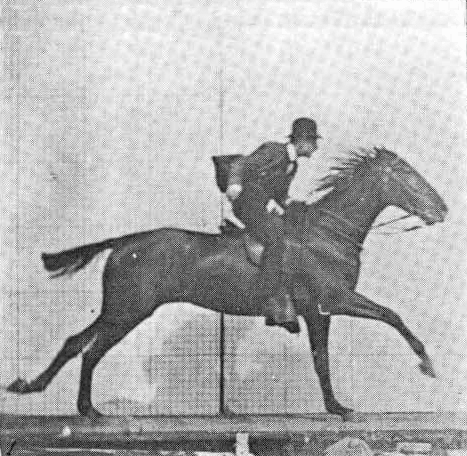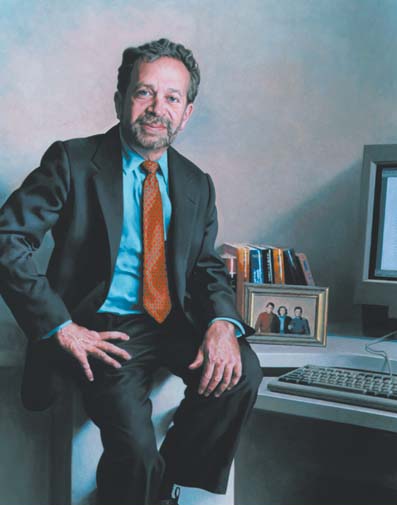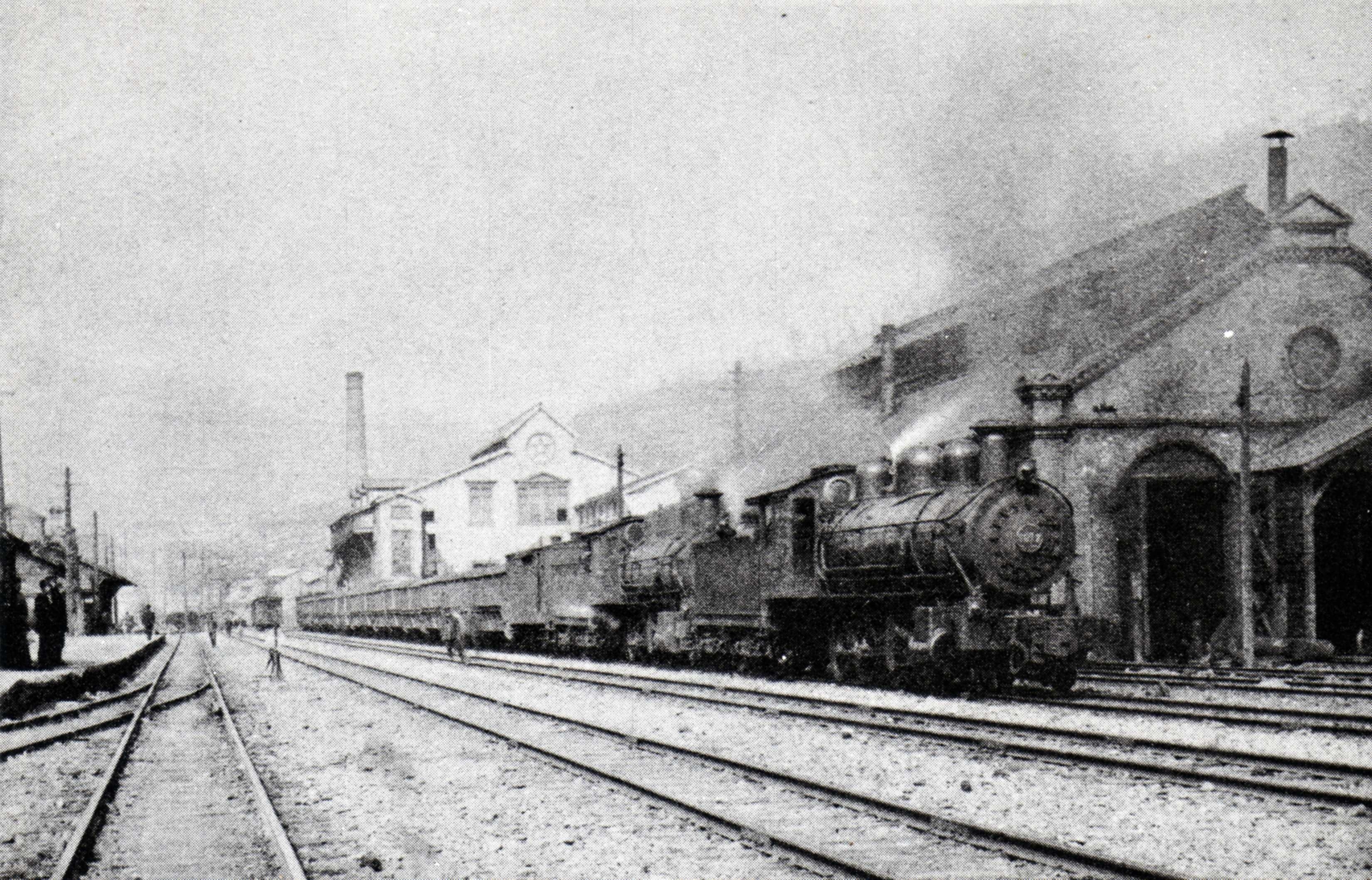Apart from Kentucky Derby day, horse racing has long suffered a diminished place in the sports and gambling worlds, so the Hong Kong Jockey Club decided to make itself over with high-tech, touchscreen gaming tables. From David Zax at MIT: “Horseracing almost feels like a throwback; it evokes images of old men angrily stubbing out cigars. But the new gaming tables–incorporating RFID, secure e-commerce and banking, multi-touch, digital video, and web technologies–are anything but a throwback. Up to eight gamers can play at a time. The tables debuted at the sleek and stylish ‘Adrenaline Bar’ at Happy Valley, Hong Kong’s most famous racecourse.”
You are currently browsing the archive for the Excerpts category.
Tags: David Zax
I’ve always wondered if marathoners have lifespans different from the average. Do they live longer or shorter because of the extreme workout their hearts consistently get? It would seem, according to some new research, that at least those who jog moderately receive great benefit from the exercise. Though you have to assume people jogging regularly might be living healthier in other ways, too, so perhaps there’s some correlation to go along with the causation. From Counsel and Heal:
“Jogging can add more than five years to people’s lives, according to a recent Danish research.
According to Peter Schnohr, chief cardiologist of the Copenhagen City Heart Study, between one and two-and-a-half hours of jogging per week could add around 6.2 years to men and 5.6 years to women.
‘The results of our research allow us to definitively answer the question of whether jogging is good for your health,’ said Schnohr in a statement.
‘We can say with certainty that regular jogging increases longevity,’ Schnohr added.
Back in 1970s, few men died while running, raising speculations whether jogging had more harm than benefits. Some said jogging might be “too strenuous for ordinary middle aged people.’
However, the new study from Copenhagen City Heart suggests that jogging in fact is improving longevity, and it doesn’t have to be strenuous to receive the benefits. Just one hour per week could do the trick.”
••••••••••
Enhanced running in a leisure suit:
The free market can be corrupted, but all-out socialism would be a horrible remedy to that. Almost as bad would be not repairing our increasingly rigged form of capitalism. The opening of Robert Reich’s blog post, “The Answer Isn’t Socialism,” written in the wake of France moving leftward:
“Francois Hollande’s victory doesn’t and shouldn’t mean a movement toward socialism in Europe or elsewhere. Socialism isn’t the answer to the basic problem haunting all rich nations.
The answer is to reform capitalism. The world’s productivity revolution is outpacing the political will of rich societies to fairly distribute its benefits. The result is widening inequality coupled with slow growth and stubbornly high unemployment.
In the United States, almost all the gains from productivity growth have been going to the top 1 percent, and the percent of the working-age population with jobs is now lower than it’s been in more than thirty years (before the vast majority of women moved into paid work).” (Thanks Browser.)
••••••••••
“Oh Karl the world isn’t fair / It isn’t and never will be / They tried out your plan / It brought misery instead / If you’d seen how they worked it / you’d be glad you were dead.” (Thanks LRR.)
Tags: Francois Hollande, Karl Marx, Randy Newman, Robert Reich
I’ve noticed a few articles in the last week about DARPA planning to implant microchips in soldiers, which reminded me that I had read something about the topic in Wired a couple years ago. From that Katie Drummond piece:
“Editing DNA could have widespread implications, but Darpa seems most interested in two: microchip implants that restore senses and movement in traumatic injury patients, and the ongoing Darpa goal of boosting troop performance in the field: On the other end of the size scale, a primary goal is to apply microsystem techniques to soldier-protective biomedical systems. One example is an in-canal hearing protection device that will provide enhanced hearing capabilities in some settings, but be able to instantly muffle loud sounds of weapons fire. This one example will improve inter-personnel communications and at the same time drastically reduce the incidence of hearing loss in combat situations. For these examples and many more, the goal is to bring exceptionally potent technical approaches to bear on biological and biomedical applications where their capabilities will be significant force multipliers for the DoD.”
Tags: Katie Drummond
Poetry and airplanes are beautiful, but you shouldn’t try to make a living from them. From Alain de Botton’s A Week at the Airport, a section about the author’s meeting with then-British Airways boss Willie Walsh, who was enduring a myriad of obstacles while the airline bled cash:
“Considered collectively, as a cohesive industry, civil aviation had never in its history shown a profit. Just as significantly, neither had book publishing. In this sense, then, the CEO and I, despite our apparent differences, were in much the same sort of business, each one needing to justify itself in the eyes of humanity not so much by its bottom line as by its ability to stir the soul. It seemed as unfair to evaluate an airline according to its profit-and-loss statement as to judge a poet by her royalty statements. The stock market could never put an accurate price on the thousands of moments of beauty and interest that occurred around the world every day under an airline’s banner: it could not describe the sight of Nova Scotia from the air, it had no room in its optics for the camaraderie enjoyed by employees in the Hong Kong ticket office, it had no means of quantifying the adrenalin-thrill of take-off.”
Tags: Alain de Botton, Willie Walsh
How does Dubai not have an underwater hotel–or twelve–already? Deep Ocean Technology is planning to remedy this oversight with the Water Discus Underwater Hotel, which will have accommodations both above and below sea level. Whether the hotel materializes or not, no one will be surprised. From Simeon Kerr of the Financial Times:
“Before the financial crisis that hit Dubai in 2009, there were plans to build an underwater hotel, known as Hydropolis, but the project has not materialised.
‘This is certainly not the first time that a technological salesman has come to Dubai and, if this project fades away, it wouldn’t be the first time either,’ said Todd Reisz, editor at Al Manakh, a project researching urban development in Gulf cities.
The announcement has revived memories of the seemingly crazy schemes dreamt up during the city’s property bubble that ended with a bust that pushed the emirate to the brink of default in 2009.”
Read also:
Tags: Simeon Kerr, Todd Reisz
From Atul Gawande’s New England Journal of Medicine piece, “Two Hundred Years of Surgery,” the moment in the Western world when medical procedures began to migrate from the external to the internal:
“The crucial spark of transformation — the moment that changed not just the future of surgery but of medicine as a whole — was the publication on November 18, 1846, of Henry Jacob Bigelow’s groundbreaking report, ‘Insensibility during Surgical Operations Produced by Inhalation‘ The opening sentences crisply summarized the achievement: ‘It has long been an important problem in medical science to devise some method of mitigating the pain of surgical operations. An efficient agent for this purpose has at length been discovered.’ Bigelow described how William Morton, a Boston dentist, had administered to his own patients, and then to several more who had undergone surgery at the Massachusetts General Hospital, a gas he called ‘Letheon,’ which successfully rendered them insensible to pain. Morton had patented the composition of the gas and kept it a secret even from the surgeons. Bigelow revealed, however, that he could smell ether in it. The news burst across the world. The Letters to the Editor pages were occupied for months with charges and countercharges over Bigelow’s defense of Morton’s secrecy and credit for the discovery. Meanwhile, ether anesthesia rapidly revolutionized surgery — how it was practiced, what could be attempted with its use, and even what it sounded like.” (Thanks Browser.)
From Matthew Lasar’s new ArsTechnica piece about the great solar storm of 1859, when the Earth became scarily brilliant:
“In New York City, San Francisco, Boston, and Chicago, thousands of sky gazers wandered about the midnight streets, astounded at what they could see. ‘Crowds of people gathered at the street corners, admiring and commenting upon the singular spectacle,’ observed the New Orleans Daily Picayune. When the September 1 aurora ‘was at its greatest brilliancy, the northern heavens were perfectly illuminated,’ wrote a reporter for The New York Times. He continued:
At that time almost the whole southern heavens were in a livid red flame, brightest still in the southeast and southwest. Streamers of yellow and orange shot up and met and crossed each other, like the bayonets upon a stack of guns, in the open space between the constellations Aries, Taurus and the Head of Medusa—about 15 degrees south of the zenith. In this manner—alternating great pillars, rolling cumuli shooting streamers, curdled and wisped and fleecy waves—rapidly changing its hue from red to orange, orange to yellow, and yellow to white, and back in the same order to brilliant red, the magnificent auroral glory continued its grand and inexplicable movements until the light of morning overpowered to radiance and it was lost in the beams of the rising sun.
Popular descriptions of the spectacle appeared everywhere. In 2006, a team of space scientists assembled a collection of eyewitness newspaper accounts of the storm. What stands out in these reports is the astonishment, awe, and even pleasure that the world experienced for a week—followed by a sobering realization of how close our planet is to its indispensable star.”
Tags: Matthew Lasar
At the BBC, Adam Curtis has posted “White Negro for Mayor,” which examines the subtext of Norman Mailer’s failed 1969 mayoral campaign in New York. Included in Curtis’ post is a really good documentary about Mailer as politician. An excerpt:
“But Mailer was a complicated man – and as well as embodying many of the hipster values he was also a perceptive and vocal critic of the new sensibility. Back in 1957 he had written an essay for Dissent magazine called ‘The White Negro.’ In it he had described how fears of nuclear annihilation had begun to produce a new kind of young alienated being in America. These hyper-individualists trusted only their own feelings and desires and refused to be part of any group or organisation. And in black culture, Mailer said, they found their identity – the culture of the dangerous outsider.
This outsider culture had originally been created, Mailer wrote, by blacks in response to racial oppression and violence. But for the ‘white negroes’ that culture was then co-opted in order to give a meaning and grandeur to their psychopathic narcissism.“
Tags: Adam Curtis, Norman Mailer
Adam Davidson of the New York Times Magazine sat down with former Bain Capital managing director and Romney supporter Edward Conard for an open discussion about how the latter believes the 1% getting richer is better for all Americans. Conard seems to be living in a delusional bubble, but it’s a fascinating article. An excerpt:
“Nearly every economist I spoke with said that Conard has too much faith in the market’s ability to reward only those who create real value. Conard, for instance, insists that even the dodgiest financial products must have been beneficial or else nobody would have bought them in the first place. If a Wall Street trader or a corporate chief executive is filthy rich, Conard says that the merciless process of economic selection has assured that they have somehow benefited society. Even pro-market Romney supporters take issue with this. ‘Ed ought to be more concerned about crony capitalism,’ Hubbard told me.
Unintended Consequences ignores some of the most important economic work of the past few decades, about how power and politics influence economic growth. In technical language, this field is the study of ‘rent seeking,’ in which people or companies get rich because of their power, not because of their ideas. This is one of the few fields in economics in which left and right share many influences and ideas — namely that wealthy individuals and corporations are able to influence politicians and regulators to make seemingly insignificant changes to regulations that benefit themselves. In other words, to rig the game. One classic example is banking. Banks have enormous resources to constantly put explicit or subtle pressure on lawmakers and regulators so that regulation can eventually serve their interests.
Conard’s version of the financial crisis ignores much reporting and analysis — including work I’ve done with NPR’s Planet Money team — that shows that some of the nation’s largest banks actively manipulated customers and regulators and, sometimes, their own stockholders to profit from dangerous risk. And for many economists, rising inequality can create exactly the wrong outcomes for society over all. Rather than simply serving as an invitation for everybody to engage in potentially beneficial risk-taking, inequality can allow those with wealth to crush new ideas.”
Tags: Adam Davidson, Edward Conard
From “The Call of the Future,” Tom Vanderbilt’s Wilson Quarterly piece about the potential and pitfalls of the Internet as a tool:
“As we start to understand how people actually use the Internet, the cyberutopian hopes of a borderless, postnational planet can look as naive as most past predictions that new technologies would transform societies. In 1912, radio pioneer Guglielmo Marconi declared, ‘The coming of the wireless era will make war impossible, because it will make war ridiculous.’ Two years later a ridiculous war began, ultimately killing nine million Europeans.
While it’s easy to be dismissive of today’s Marconis—the pundits, experts, and enthusiasts who saw a rise in Internet connection leading to a rise in international understanding—that’s too simple and too cynical a response. Increased digital connection does not automatically lead to increased understanding. At the same time, there’s never been a tool as powerful as the Internet for building new ties (and maintaining existing ones) across distant borders.
The challenge for anyone who wants to decipher the mysteries of a connected age is to understand how the Internet does, and does not, connect us. Only then can we find ways to make online connection more common and more powerful.”
••••••••••
Marconi demonstrates the wireless telegraph:
Tags: Guglielmo Marconi, Tom Vanderbilt
Two questions from the excellent Ask Me Anything that Paul Krugman just did on Reddit, one about the cause of American income disparity and one about his fabulous beard:
“[–]Ashoat 382 points ago
[–]nytimeskrugman[S] 573 points ago
Tags: Paul Krugman
From Katie Drummond at Wired: “According to Dmitry Itskov, a 31-year-old Russian media mogul, the U.S. military’s Avatar initiative doesn’t go nearly far enough. He’s got a massive, sci-fi-esque venture of his own that he hopes will put the Pentagon’s project to shame. Itskov’s plan: Construct robots that’ll (within 10 years, he hopes) actually store a human’s mind and keep that consciousness working. Forever.
‘This project is leading down the road to immortality,’ Itskov, who founded New Media Stars, a Russian company that runs several online news outlets, tells Danger Room. ‘A person with a perfect Avatar will be able to remain part of society. People don’t want to die.'”
Tags: Dmitry Itskov, Katie Drummond
The opening of “Science Fiction No More,” Will Doig’s fascinating new Salon article about pop-up, sentient cities, which use sensors to collect a non-stop stream of data:
“Formula One car racing is the most viewed sport in the world. On any given race day, half a billion people — one-fourteenth of the globe — are watching it on TV. But it’s what they’re not seeing that wins races today: More than 300 sensors are implanted throughout each vehicle to monitor everything from air displacement to tire temperature to the driver’s heart rate. These data are continuously transmitted back to a control room, where engineers run millions of calculations in real time and tweak their driver’s strategy accordingly.
Through this process, every last ounce of efficiency and performance is wrung out of each car. And so it will be with cities like PlanIT Valley, currently being built from scratch in northern Portugal. Slated for completion in 2015, PlanIT Valley won’t be a mere ‘smart city’ — it will be a sentient city, with 100 million sensors embedded throughout, running on the same technology that’s in the Formula One cars, each sensor sending a stream of data through the city’s trademarked Urban Operating System (UOS), which will run the city with minimal human intervention.
‘We saw an opportunity … to go create something that was starting with a blank sheet,’ said PlanIT Valley creator Steve Lewis, ‘thinking from a systems-wide process in the same way we would think about computing technologies.'” (Thanks Browser.)
Tags: Steve Lewis, Will Doig
The Civil War didn’t claim so many lives merely because of the brutality of the battles but also because it was fought just before the dawn of modern medicine. One man, William Hammond, by all accounts a miserable prick to work with, saved countless thousands with his bold vision after President Lincoln appointed him Surgeon General of the Army in 1862. But there was only so much he could do. From Pat Leonard in the New York Times:
“Yet even with his state-of-the-art initiatives to improve sanitation and save lives, Hammond was fighting an uphill battle. The American Civil War was fought during what he would later describe as ‘the end of the medical Middle Ages.’ An understanding of germ theory was still a decade away, and thousands died not from their wounds but from infections or gangrene that developed later. During and following a major battle, doctors performed amputations by the hundreds, sawing off mangled limbs as quickly as men could be lifted onto makeshift operating tables, without so much as wiping their blades between procedures. The death rate following amputations ranged as high as 50 percent, especially when major limbs were involved or when soldiers had to wait more than a few hours to be treated.
And that wasn’t the worst of it. The greatest menace to Civil War soldiers was not enemy fire, nor even the infections that almost always inflamed their wounds and/or stumps. The majority of field fatalities – an estimated three out of five among Union dead, and two out of three among Confederates – were caused by preventable diseases that swept through camps and hospitals, including dysentery, typhoid fever, pneumonia, tuberculosis and even ‘childhood’ ailments like measles, chickenpox and whooping cough.
Writing home, soldiers often remarked that they didn’t fear the big battles as much as being taken to a hospital, where they would be exposed to killers they couldn’t see and didn’t understand.”
Tags: Pat Leonard, William Hammond
Some of the best writing and thinking in the country right now is being done at the L.A. Review of Books. From an LARB article about lessons gone unlearned in Los Angeles, written by that prophet of doom Mike Davis:
“Indeed, L.A. labor, instead of leading the march toward prison reform and the ending of the war on drugs, now lifts its glass along with the rest to celebrate the legacy of Chief Bratton and the current liberal love affair with the LAPD. At the same time, a new East Side civic elite (with much political but little economic power) sups from the silver chalices of the latest cohort of super-rich mega-looters (Ed Roski, Ric Caruso, Allen Casden, the Anshutz Entertainment Group, and so on). That bankruptcy asset known as the Los Angeles Times continues its long tradition of bravely exposing graft on a miniature scale (the City of Bell scandal, for example) while giving a pass to the felonies of billionaires (almost everything having to do with downtown real estate or rail transportation).
I betray my age by noting that the current culture of comfortable corruption and jaded accommodation in City Hall — theoretical liberals doing the heavy lifting for wealthy Republicans — is smugly reminiscent of Tom Bradley’s last term. If the analogy holds, then a skybox in the new Los Angeles Stadium will afford a wonderful view of the city burning for a third time.”
Tags: Mike Davis
With so much of life shifted online, it’s natural that elements of warfare will follow. From Michael Gallagher at the BBC:
“‘Sophisticated cyber attackers could do things like derail trains across the country,’ says Richard A Clarke, an adviser on counter-terrorism and cyber-security to presidents Clinton and Bush.
‘They could cause power blackouts – not just by shutting off the power but by permanently damaging generators that would take months to replace. They could do things like cause [oil or gas] pipelines to explode. They could ground aircraft.’
Clarke’s worries are fuelled by the current tendency to put more of our lives online, and indeed, they appear to be borne out by experiments carried out in the United States.”
A sequence from former Labor Secretary Robert Reich’s excellent Ask Me Anything on Reddit:
“Question (seeker135):
In your opinion, are we in the Endgame of the Republic?
Answer (robertbreich):
No.
Question (hierocles):
In the sense that the United States political system will no longer look like it used to, yes. Obviously the country is not going to fall into anarchy. But without institutional changes, all branches of government will have to be controlled by the same party if they’re going to be at all effective. We will have to enter into a pseudo one-party state.
Answer (robertbreich):
I’m not quite as pessimistic, but I do think there have to be major institutional changes. The most important, in my view, is limiting campaign contributions. That will be hard to do in the wake of the Supreme Court’s grotesque ‘Citizen’s United’ decision, but I still think public financing of general elections can work, if the extent of the potential financing is raised. Remember, both presidential candidates used public financing in 1976, and didn’t rely on any outside financing. Seems hard to believe from where we are now.
Question (kblz):
Mr. Reich, is the United States is a functioning republic? also – what would you do, now, if you were secretary of labor? would you encourage and protect small businesses? what about healthcare?
Answer (robertbreich):
We’re drifting toward becoming a plutocracy, run by a relatively small number of extremely wealthy individuals, CEOs, and Wall Street moguls. That’s why we need to get serious about campaign finance reform, why tax reform is vital, and why the entire economy needs to be reorganized to widen the circle of prosperity — so that far more of us benefit from the gains of productivity growth. If I were back in the administration, I’d strengthen labor unions, try to create a single-payer system for healthcare, use antitrust laws to break up big concentrations of power (such as the biggest banks on Wall Street), resurrect the Glass-Steagall Act (that used to separate investment from commercial banking), and enlarge the Earned Income Tax Credit (a wage subsidy for lower-income workers).”
• • • • • • • • • •
Oh my god, look at these two tiny communists go! They are so adorable.
Tags: Robert Reich
EST salesman Werner Erhard, who converted loads of people in the ’70s and ’80s to a higher level of self-awareness–or some shit–by gathering them in hotel ballrooms and hectoring them, just gave his first interview in a couple of decades. He is still a piece of work. From Lucy Kellaway’s Financial Times article:
“It turns out Werner Erhard sees himself as something far greater than nice. He solemnly tells me that he is, without question, a hero.
‘Here’s my definition of a hero. A hero is an ordinary person given being and action by something bigger than themselves. One thing I’m sure about is I’m real ordinary. Yet I’ve had the chance to touch the lives of a lotta people.’
It is true that Erhard has touched many lives – I’ve come across plenty of his converts – but I’ve never really grasped what it was that they learnt in those long days in hotel ballrooms.
‘People understood that nothing is significant. Life is empty and meaningless, and it’s empty and meaningless, that it’s empty and meaningless.’
I nod, a little confused.
‘Until what is significant is created by you, you aren’t living your life, you are living some inherited life.'” (Thanks Browser.)
••••••••••
John Denver interviews Erhard on the Tonight Show, 1973:
Bucky Fuller + Erhard:
Tags: Lucy Kellaway, Werner Erhard
Malls are dead, and money and credit cards aren’t feeling so well, either. From Somini Sengupta in the New York Times:
“‘The physical wallet, which had no innovation in the last 50 years, will become an artifact,’ John J. Donahoe, the chief executive of eBay, told me recently. The wallet would move into the cloud, and ideally, from his perspective, into PayPal. No more would the consumer worry about losing a wallet, nor about organizing coupons and loyalty cards. Everything, he declared, would be contained within PayPal. It would also enable the company to collect vast amounts of data about customer habits, purchases and budgets.
PayPal recently rolled out a payment system at 2,000 Home Depot stores nationwide, allowing customers to pay simply by typing in their cellphone numbers, along with a PIN. It plans to install similar kiosks later this year at other chains, including a fast food establishment.
Mr. Donahoe said he wanted his company to become ‘a mall in your pocket.'”
Tags: John J. Donahoe, Somini Sengupta
In another sign that we’re horribly narcissistic pack animals, this passage from a Physorg post about Clay Voorhees’ study on brand loyalty:
“Customer loyalty increased when the participants viewed other customers as similar to themselves. The general physical appearance and behavior of the other customers also played a role.
‘Basically, do I feel like they’re the same type of person as me?’ said Voorhees. ‘Do they look good? Do they behave? These factors increase the likelihood of people returning to the store.’
Companies that incorporate these factors into their marketing efforts could increase loyalty by 30 percent – nearly doubling the ability to predict customer loyalty compared to traditional survey approaches that narrowly focus on the quality of service provided by the employees.
Voorhees said most companies today have become good at customer service and managing their employees.
‘So the next frontier is how to better manage their portfolio of customers,’ he said. “
Tags: Clay Voorhees
I just realized that “The Chameleon,” David Grann’s brilliant 2008 New Yorker article is online for free. It’s a long profile of Frédéric Bourdin, a Frenchman who would serially pose as teenagers. He took the modern obsession with reinvention through “reality” TV and social media to an extreme. The perfect opening:
“On May 3, 2005, in France, a man called an emergency hot line for missing and exploited children. He frantically explained that he was a tourist passing through Orthez, near the western Pyrenees, and that at the train station he had encountered a fifteen-year-old boy who was alone, and terrified. Another hot line received a similar call, and the boy eventually arrived, by himself, at a local government child-welfare office. Slender and short, with pale skin and trembling hands, he wore a muffler around much of his face and had a baseball cap pulled over his eyes. He had no money and carried little more than a cell phone and an I.D., which said that his name was Francisco Hernandez Fernandez and that he was born on December 13, 1989, in Cáceres, Spain. Initially, he barely spoke, but after some prodding he revealed that his parents and younger brother had been killed in a car accident. The crash left him in a coma for several weeks and, upon recovering, he was sent to live with an uncle, who abused him. Finally, he fled to France, where his mother had grown up.
French authorities placed Francisco at the St. Vincent de Paul shelter in the nearby city of Pau. A state-run institution that housed about thirty-five boys and girls, most of whom had been either removed from dysfunctional families or abandoned, the shelter was in an old stone building with peeling white wooden shutters; on the roof was a statue of St. Vincent protecting a child in the folds of his gown. Francisco was given a single room, and he seemed relieved to be able to wash and change in private: his head and body, he explained, were covered in burns and scars from the car accident. He was enrolled at the Collège Jean Monnet, a local secondary school that had four hundred or so students, mostly from tough neighborhoods, and that had a reputation for violence. Although students were forbidden to wear hats, the principal at the time, Claire Chadourne, made an exception for Francisco, who said that he feared being teased about his scars. Like many of the social workers and teachers who dealt with Francisco, Chadourne, who had been an educator for more than thirty years, felt protective toward him. With his baggy pants and his cell phone dangling from a cord around his neck, he looked like a typical teen-ager, but he seemed deeply traumatized. He never changed his clothes in front of the other students in gym class, and resisted being subjected to a medical exam. He spoke softly, with his head bowed, and recoiled if anyone tried to touch him.
Gradually, Francisco began hanging out with other kids at recess and participating in class. Since he had enrolled so late in the school year, his literature teacher asked another student, Rafael Pessoa De Almeida, to help him with his coursework. Before long, Francisco was helping Rafael. ‘This guy can learn like lightning,’ Rafael recalls thinking.
One day after school, Rafael asked Francisco if he wanted to go ice-skating, and the two became friends, playing video games and sharing school gossip. Rafael sometimes picked on his younger brother, and Francisco, recalling that he used to mistreat his own sibling, advised, ‘Make sure you love your brother and stay close.’
At one point, Rafael borrowed Francisco’s cell phone; to his surprise, its address book and call log were protected by security codes. When Rafael returned the phone, Francisco displayed a photograph on its screen of a young boy who looked just like Francisco. ‘That’s my brother,’ he said.
Francisco was soon one of the most popular kids in school, dazzling classmates with his knowledge of music and arcane slang—he even knew American idioms—and moving effortlessly between rival cliques. ‘The students loved him,’ a teacher recalls. ‘He had this aura about him, this charisma.’
During tryouts for a talent show, the music teacher asked Francisco if he was interested in performing. He handed her a CD to play, then walked to the end of the room and tilted his hat flamboyantly, waiting for the music to start. As Michael Jackson’s song ‘Unbreakable’ filled the room, Francisco started to dance like the pop star, twisting his limbs and lip-synching the words “You can’t believe it, you can’t conceive it / And you can’t touch me, ’cause I’m untouchable.’ Everyone in the room watched in awe. ‘He didn’t just look like Michael Jackson,’ the music teacher subsequently recalled. ‘He was Michael Jackson.’
Later, in computer class, Francisco showed Rafael an Internet image of a small reptile with a slithery tongue.
‘What is it?’ Rafael asked.
‘A chameleon,’ Francisco replied.”•
Read also:
- An excerpt from Ian Parker’s Granta profile of impostor Brian MacKinnon.
Tags: David Grann, Frédéric Bourdin
Adam Curtis has just republished a post on his BBC blog about that class act Rupert Murdoch. One segment concerns the late talk show host Russell Harty, who played a sort of jackass interviewer on TV, but certainly did not deserve to be hounded by Murdoch reporters as he lay dying in a hospital bed from an AIDS-related illness. An excerpt:
“In 1989 – on the 20th anniversary of buying the Sun – Murdoch helped write an editorial that trumpeted his vision of himself as a revolutionary:
‘The Establishment does not like the Sun. Never has
There is a growing band of people in positions of influence and privilege who want OUR newspaper to suit THEIR private convenience. They wish to conceal from readers’ eyes anything that they find annoying or embarrassing.
LIVING LIES AND HYPOCRISY ON HIGH CAN HAVE NO PLACE IN OUR SOCIETY
IT IS THE STRUGGLE OF ALL THOSE CONCERNED FOR FREEDOM IN BRITAIN.’
But the liberal elite were already fighting a counterattack. It had begun with the chat-show host Russell Harty the year before as he lay dying in a hospital bed from hepatitis.
Harty was a homosexual who had been hounded by the News of the World. With his illness this had turned into a media frenzy – with reporters from all the tabloids pursuing him in a hospital, posing as junior doctors demanding to see Harty’s medical notes, and photographers renting a flat opposite his hotel room.
At Harty’s funeral in 1988 the playwright Alan Bennett publicly accused the tabloid press of accelerating his friend’s death. ‘The gutter press finished him.’
The Sun chose to reply:
‘Stress did not kill Russell Harty. The truth is that he died from a sexually transmitted disease.
The press didn’t give it to him. He caught it from his own choice. And by paying young rent boys he broke the law.
Some – like ageing bachelor Mr Bennett – can see no harm in that. He has no family.
But what if it had been YOUR son Harty had bedded?'”
Tags: Adam Curtis, Rupert Murdoch
Japan’s population is aging and thinning, with so many younger natives moving abroad. That leaves the country in a precarious position for the future, though long-term prognostications of doom like predictions of sustained glory are often wrong. At any rate, the opening of Hiroki Tabuchi’s New York Times article on a dying town that may be a microcosm of sorts for the nation:
“YUBARI, Japan — Most young people have already fled this city of empty streets and shuttered schools, whose bankrupt local government collapsed under the twin burdens of debt and demographics that are slowly afflicting the rest of Japan.
Now, Yubari, a former coal-mining town on Japan’s northernmost main island, Hokkaido, is hoping an unlikely savior can reverse its long decline: a 31-year-old rookie mayor who has come to symbolize the struggle confronting young Japanese in the world’s most graying and indebted nation.
‘Japan will tread the same path someday,’ said Naomichi Suzuki, who a year ago this month became the youngest mayor of the country’s most rapidly aging city. ‘If we can’t save Yubari, what will it mean for the rest of Japan?’
Indeed, the city’s plight and attempt to fight back — which has become a story line in the national media — could offer a glimpse of Japan’s future.”
Tags: Hiroki Tabuchi, Naomichi Suzuki
Apple is building its own private restaurant in Cupertino to better ensure that its employees won’t be overheard when discussing company business. From The Next Web:
“Apple has had a planning request approved for a new off-campus restaurant by the Cupertino Planning Commission, providing employees with a place to eat and discuss company plans and product development without fear of Apple’s competitors overhearing conversations.
The new 21,468-square-foot cafeteria, which was approved at a meeting on Tuesday, is located a short walk from Apple’s Infinite Loop headquarters and will provide cafe, meeting room, lounge areas and courtyard facilities, as well as a dedicated second floor for restaurant staff.
At the meeting Dan Whisenhunt, Apple’s director of real estate facilities, spelled out why the new building would be beneficial for the company:
‘We like to provide a level of security so that people and employees can feel comfortable talking about their business, their research and whatever project they’re engineering without fear of competition sort of overhearing their conversations.'”

























